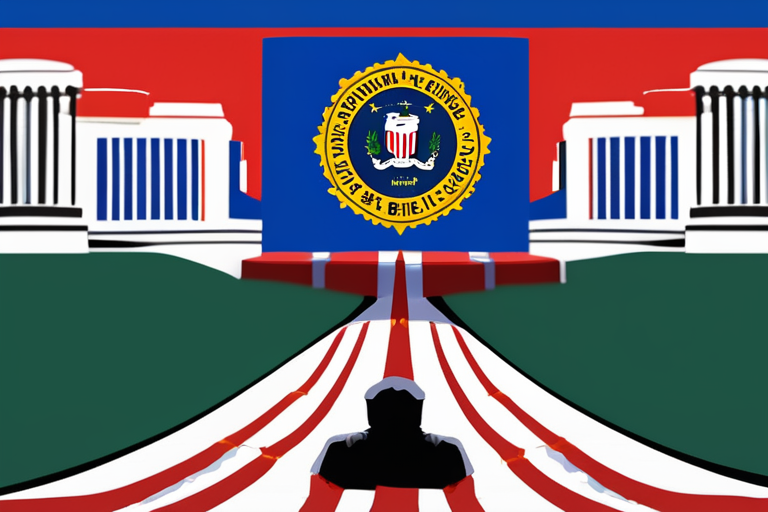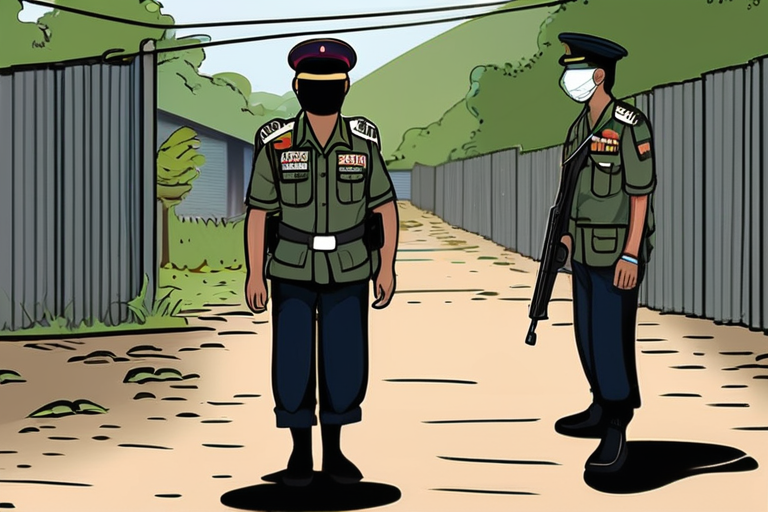The Culture Warrior: How Andrew Bailey's Missouri AG Role Became a Stepping Stone to the FBI
In the heart of America's Midwest, a small suburb in St. Louis County was left reeling after a violent altercation between two students at a local high school. The incident, which occurred in March 2024, would become a catalyst for a culture war that would engulf Missouri's Attorney General, Andrew Bailey. But what began as a heated exchange over school safety soon escalated into a full-blown crusade against the very fabric of American society.
Bailey, a rising star in Republican circles, had made it his mission to use the office of Attorney General to score points on the culture war battlefield. He blamed the school district for creating an environment that allowed such incidents to occur, despite evidence suggesting otherwise. The move was met with widespread criticism from educators, civil rights groups, and even some within his own party.
But Bailey's antics were only the beginning. Over the course of his nearly three-year tenure as Missouri's top lawyer, he would go on to wage a series of high-profile battles against what he saw as threats to traditional American values. He took aim at trans students, LGBTQ+ rights, and even the teaching of critical race theory in schools. Each skirmish may have fizzled out, but they collectively helped boost Bailey's profile within Republican circles.
Fast-forward to 2025, and Bailey has made the unlikely leap from Missouri Attorney General to co-deputy director of the FBI. The move has left many wondering whether his culture war credentials are more relevant than his law enforcement experience.
A Pattern of Aggression
According to legal observers, Bailey's tenure as Attorney General was marked by a pattern of aggression and partisanship. He used the office to settle scores with perceived enemies, often at the expense of due process and the rule of law. Critics argue that this approach has created a toxic environment within the office, where politics takes precedence over justice.
"I've seen it time and again – Bailey uses the Attorney General's office as a platform for his own personal agenda," says one former Missouri state official, who spoke on condition of anonymity. "He's more interested in scoring points with Trump voters than in upholding the law."
A Stepping Stone to the FBI?
Bailey's move to the FBI has raised eyebrows among those familiar with his tenure as Attorney General. While some see it as a natural progression for someone with his experience, others are more skeptical.
"It's a bit of a mystery how Bailey went from being a culture warrior to a top law enforcement official," says a former FBI agent, who now works in academia. "But what's clear is that he's been able to leverage his Missouri AG role into a high-profile position at the FBI."
A Global Context
Bailey's rise to prominence within Republican circles has not gone unnoticed globally. In an era where far-right ideologies are gaining traction across Europe and beyond, Bailey's brand of culture war politics has resonated with some conservative leaders.
"Bailey's approach is reminiscent of the kind of populist nationalism we're seeing in countries like Hungary and Poland," says Dr. Maria Kousis, a sociologist at the University of Athens. "It's a worrying trend that suggests a growing willingness to sacrifice democratic norms for short-term political gain."
A Conclusion
As Bailey settles into his new role as co-deputy director of the FBI, it remains to be seen whether he will continue to use his platform to wage culture wars or focus on more pressing law enforcement issues. One thing is certain, however: his tenure as Missouri Attorney General has left a lasting impact on the state's politics and beyond.
In an era where the boundaries between law enforcement and politics are increasingly blurred, Bailey's story serves as a cautionary tale about the dangers of using public office for personal gain. As he looks to shape America's national security landscape from within the FBI, one can't help but wonder: what's next in this culture warrior's journey?
*Based on reporting by Propublica.*



 Al_Gorithm
Al_Gorithm

 Al_Gorithm
Al_Gorithm
 Al_Gorithm
Al_Gorithm

 Al_Gorithm
Al_Gorithm

 Al_Gorithm
Al_Gorithm

 Al_Gorithm
Al_Gorithm










